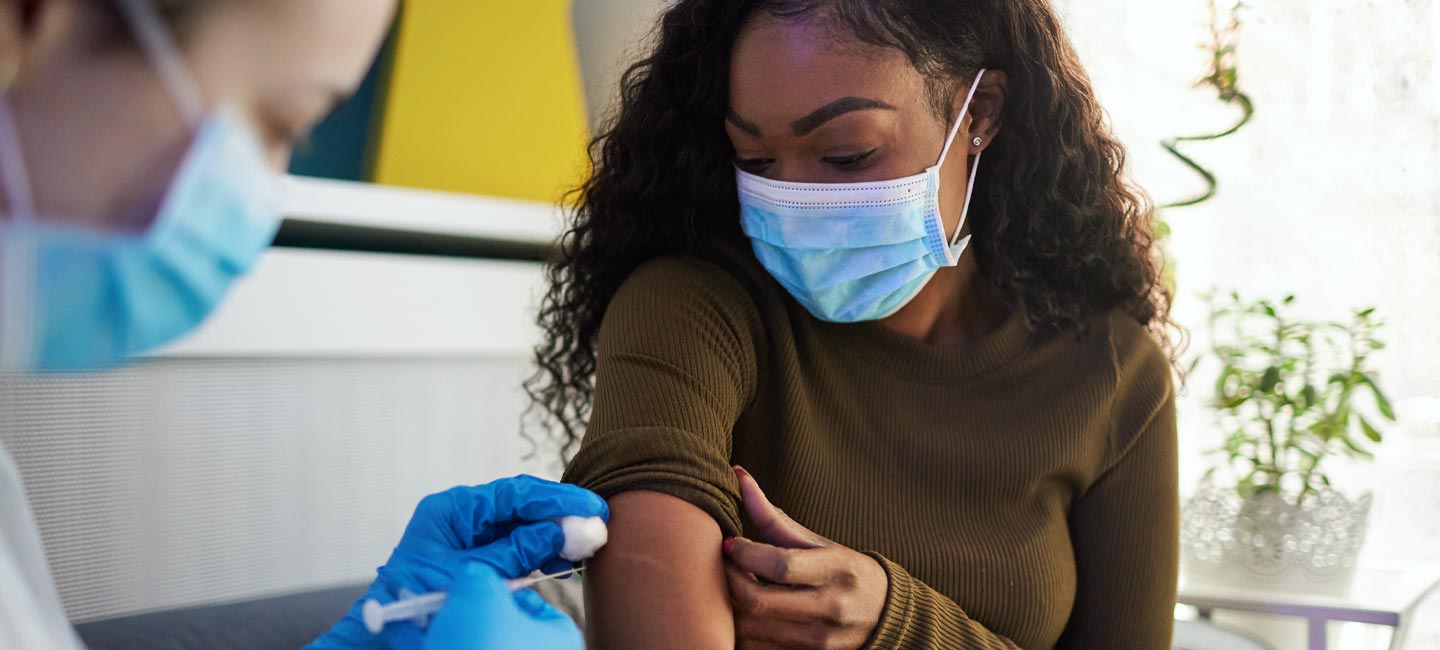2 COVID-19 Vaccine Doses More Effective Than 1 for Cancer Patients
According to a new study, cancer patients had lower rates of COVID-19 infection and death after two doses versus one dose of the COVID-19 vaccine. The study from Centre Léon Bérard Cancer Center was published in Annals of Oncology. It looked at 1,503 cancer patients who had no known prior COVID-19 infection and received at least one dose of vaccine.
A majority of study participants, 1,091 (72.6%), received two vaccine doses, while 412 (27.4%) received one. Researchers followed up with the patients after 44 days and found that 24 patients had developed COVID-19 symptoms. Twenty of those had only one dose of the vaccine, while the remaining four had two doses.

Dr. John Greene, Infectious Diseases Program
“This study reaffirms a lot of what we’ve known,” said Dr. John Greene, chair of the Infectious Diseases Program at Moffitt Cancer Center. “The one dose was not as protective as the second. When you’re getting active treatment, your immune response is lower. Other studies have shown the same thing. Your risk of getting infected, seriously ill or dying is greater if you only got one dose as opposed to two.”
Cancer patients generally have a lower immune response than someone without underlying health issues, which puts them at a higher risk of death from COVID-19 infection. Their immune response is also lower than most when they become sick from COVID-19 and after being vaccinated. Three of the 24 patients who became sick with COVID-19 died, including two patients who had hematologic malignancies and one who had a solid tumor.
“Those who are immunosuppressed in general should want to get the vaccine,” said Greene. “Most of these people with hematologic malignancy are going to be older. They usually have no problems getting vaccines. If you’re a young person with leukemia, you probably should get vaccinated because you’re probably at high risk. We know the two doses will give you a much better, more vigorous response.”
The study found overall survival within two months from the date of the first vaccination was lower for patients vaccinated with one dose versus patients with two. According to Greene, the risk of mortality in a healthy population is about 25 times less than in cancer patients.
“The ultimate question is ‘does it prevent death?’ If you can prevent that, it’s a much more powerful message than preventing just the illness itself,” said Greene. “People are more likely to listen to their doctors if the mortality rate is lower. That shows the importance of the study.”
CDC recommends an additional dose of #COVID19 vaccines for people who are moderately to severely immunocompromised.
— CDC (@CDCgov) August 25, 2021
This fall, other people may begin receiving a booster dose because their immune response may have decreased over time.
More: https://t.co/77CTFuJFcO. pic.twitter.com/sTj3az0Y70
Both the U.S. Federal Drug Administration and the Centers for Disease Control and Prevention recently approved a third dose of the COVID-19 vaccine for immunocompromised individuals. If you are immunocompromised, you should get a third dose of the vaccine as soon as possible to help increase the chance you mount a response.



